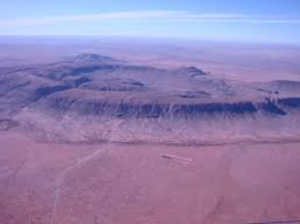Vedanta are aggressively expanding in a quest to fulfil Anil Agarwal’s ambition to become a diversified mining and metals corporate to match the likes of BHP Billiton. At each new site they make grand investment and employment claims, flood local communities with money and CSR schemes, and issue flashy Sustainability reports. Once established, however, they begin a familiar pattern of outsourcing and de-unionising jobs, reducing health and safety standards, and displacing and polluting local communities without remorse. Illegal mining, failing to obtain proper environmental permissions, over invoicing costs, under-declaring mined volumes, transfer pricing, and various forms of tax evasion are the Vedanta norm. It is this modus operandi which consistently puts Vedanta in the ‘lowest quartile’ of production costs, as Agarwal often brags to investors.
It is crucial that communities know this company’s history before giving them social license to operate. Below are some of the areas currently threatened by Vedanta’s expansion.

In South Africa, Vedanta are developing Africa’s largest zinc mine – the 214 million tonne Gamsberg mine, in the Northern Cape area. Gamsberg is an ‘inselberg’ mountain at the heart of a ‘Criticial Biodiversity Area’ for the Succulent Karoo Biome, one of the world’s 36 biodiversity hotspots. The name Gamsberg derives from the Nama word ‘||gams’, meaning ‘water’, due to the two perennial streams which run down the mountain, a crucial resource in the desert environment. The ore will be trucked across the border to the Skorpion zinc refinery in neighbouring Namibia., where Vedanta recently retrenched 278 employees, asking them to shift to contract labour, and infuriating unions.
In March 2017 Anil Agarwal acquired a 12.4% stake in Anglo American, via his holding company, Volcan Investments, and later increased his stake to 20%, making him Anglo’s biggest shareholder and signalling his clear aim to merge with the company and inherit their various mines and assets in Africa. In July 2016 Agarwal joined Indian Prime Minister Narendra Modi on his envoy to South Africa, demonstrating his Indian state backing.
Vedanta subsidiary Cairn India has exploration rights for Block 1 in the South African Orange Basin Offshore oilfields in a joint venture with Petro SA.

In Ghana, Vedanta is awaiting closure on a deal to take over Ghanain state run firm Aluworks for a mere $25 million, planning to open bauxite mines and refineries in the country, which has never been allowed an integrated aluminium industry. Agarwal also holds a 13% interest in Azumah Resources, who have rights to the Wa gold mine, a 2,400km² gold concession in Ghana. Agarwal’s shares are held via ‘Caitlyn Ltd’, a Mauritius (tax haven) registered holding company controlled by Anil’s son Agnivesh Agarwal.
In Liberia, Vedanta Ltd hold 100% of Western Cluster Limited, controlling a 1 billion tonne mega iron ore mine at Mano river and Bomi hills, which is yet to be developed. Vedanta’s acquisition of the previously state owned asset from the now-exposed phony company Elenito Minerals & Mining LLC, was extremely undervalued and irregular.
In Chhattisgarh, India, Vedanta won the auctioned lease of a 2,700kg gold mine in February 2016. The mine will cover 608 hectares, affecting at least 24 villages in a predominantly adivasi (tribal) area. Company documentation only mentions two affected villages – Baghmara and Devpur. Previous attempts to exploit gold from the Sonakhan area during British colonial rule met fierce resistance from adivasis, and local leader Narayan Singh, who was imprisoned after he advised drought-struck villagers to loot grain stocks from the rich.
In Jharkhand, India, Vedanta Ltd is planning a major steel plant at Manoharpur in West Singhbum district in a joint project with the Jharkhand Mineral Development Corporation. This article in Hindi outlines the threats to local adivasi communities.
In Odisha, India, following the successful campaign against their Niyamgiri mine, Vedanta continue to push the State government to provide alternative bauxite mines to feed the loss making Lanjigarh refinery. Kodingamali, in Koraput district, is the preferred bauxite ‘mali’ (mountain), which the State owned Odisha Mining Corporation now has forest clearance to mine for Vedanta. During 2017 residents of 25 local villages protested and resolved to oppose all mining in the area. Many other Odisha bauxite malis including Sijimali, Sasu-bohu Mali, Ushabali Mali Parbat and Kuturumali are also under threat.